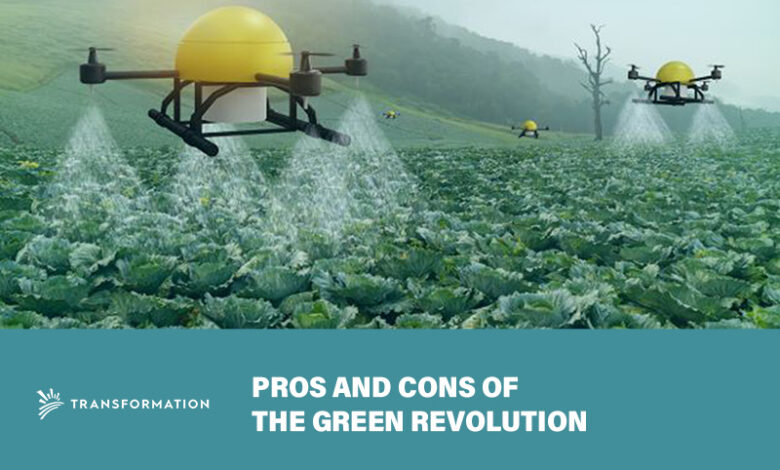Green Revolution: Why Sustainability in the Food Industry Is Not a Trend, But a Necessity

In today’s world, the urgency for sustainable practices in every sector is palpable, and nowhere is this more critical than in the food industry. As one of the largest consumers of water, land, and energy, the food sector plays a pivotal role in the health of our planet. The traditional methods of food production, heavily reliant on chemical fertilizers, pesticides, and water-intensive practices, have led to a host of environmental problems, including soil degradation, water scarcity, and loss of biodiversity. It is clear that without a shift towards more sustainable practices, the long-term impacts on the earth and future generations could be dire.
Sustainability in the food industry encompasses a wide array of practices aimed at reducing environmental impact, enhancing animal welfare, and ensuring fair worker treatment. It’s a holistic approach that considers the entire lifecycle of food production, from the farm to the consumer’s table. The goal is to create systems that are not only environmentally sound but also economically viable and socially equitable. However, the path to sustainability is fraught with challenges, from technological limitations to market demands and policy hurdles.
“To secure our future, sustainability must become the backbone of our food systems, not just a fleeting concern.”
The Current State of the Food Industry and Environmental Impact
The environmental footprint of the food industry is monumental. Agriculture alone is responsible for about 70% of global freshwater use and contributes significantly to greenhouse gas emissions. The use of synthetic fertilizers and pesticides has increased yield but at the cost of significant environmental degradation, including soil depletion, water pollution, and harm to wildlife. Moreover, the energy-intensive nature of food processing, packaging, and transportation adds further to the carbon footprint of our food systems.
The consequences of such practices are not only environmental but also social and economic. Farmers find themselves in a vicious cycle of dependency on chemical inputs, facing increased costs and diminishing returns. Communities living near industrial farming operations suffer from pollution-related health issues, while globally, the unsustainable use of resources threatens food security for the world’s growing population.
In an effort to address these challenges, many have turned to Fishing Techniques and other sustainable practices as models for how we might reshape our approach to food production. By looking at methods that harmonize with nature rather than work against it, we can begin to envision a food system that supports health, sustains livelihoods, and preserves the environment.
Key Components of Sustainable Food Production
Sustainable food production is multifaceted, involving everything from agricultural practices to supply chain logistics. At its core, it seeks to minimize environmental impact while maximizing efficiency and fairness. Organic farming, which eschews synthetic pesticides and fertilizers in favor of natural alternatives, is one pillar of sustainable agriculture. It promotes soil health, water conservation, and biodiversity. However, organic farming is just one piece of the puzzle. Regenerative agricultural practices go a step further, aiming not only to do no harm but also to actively improve the environment. Techniques such as crop rotation, cover cropping, and reduced tillage can enhance soil fertility, sequester carbon, and reduce erosion.
Another critical component is sustainable aquaculture, which offers a solution to overfishing and the degradation of marine ecosystems. By adopting practices that ensure the health and welfare of aquatic species, reduce environmental impact, and provide socio-economic benefits to local communities, sustainable aquaculture can meet our seafood needs without compromising the health of our oceans.
- Transitioning to renewable energy sources for farming operations.
- Implementing water-saving technologies such as drip irrigation.
- Supporting small-scale farmers and community agriculture programs.
Technological Innovations Driving Sustainability
Innovation is key to overcoming the challenges of sustainable food production. Modern technology offers tools that can revolutionize farming practices, reduce waste, and make the food supply chain more transparent and efficient. Precision agriculture, for example, utilizes drones, satellites, and IoT sensors to monitor crop health, optimize water usage, and maximize yields with minimal environmental impact. These technologies allow farmers to apply water, fertilizers, and pesticides more selectively, reducing excess runoff and pollution.
Alternative protein sources, such as plant-based meats and lab-grown meat, also hold promise for reducing the environmental footprint of our diets. By offering alternatives to conventional meat, which is resource-intensive to produce, these innovations can help lessen deforestation, water use, and greenhouse gas emissions associated with livestock farming.
The Role of Consumers in Promoting Sustainable Food Choices
The power of consumer choice cannot be underestimated in driving the food industry toward sustainability. Awareness and demand for sustainable products encourage businesses to adopt greener practices. Consumers can support sustainability by choosing locally sourced, seasonal foods, reducing meat consumption, and opting for products with minimal packaging.
- Choosing products certified by credible sustainability standards.
- Supporting businesses that prioritize fair labor practices and environmental stewardship.
- Reducing food waste through mindful shopping and consumption habits.
The growing interest in farm-to-table dining and community-supported agriculture (CSA) programs reflects a broader shift towards valuing food provenance and sustainability. These movements not only help reduce the carbon footprint associated with long-distance food transportation but also strengthen local economies and foster community connections.
Beyond the Plate: The Broader Implications of Sustainable Food Production
The impact of sustainable food production extends far beyond environmental benefits. It has the potential to transform economies, improve health outcomes, and promote social justice. By investing in sustainable practices, we can create a more equitable food system that supports small-scale farmers and communities, reduces health disparities, and fosters a deeper connection between people and the planet.
The journey towards a sustainable food industry is complex and challenging, but it is also filled with opportunity. By embracing innovation, supporting equitable and environmentally friendly practices, and making informed choices as consumers, we can drive the change needed to ensure a healthy planet and a prosperous future for all.



